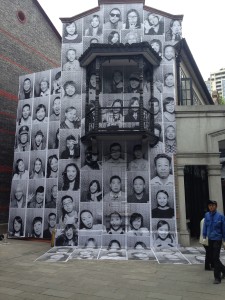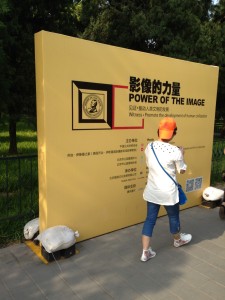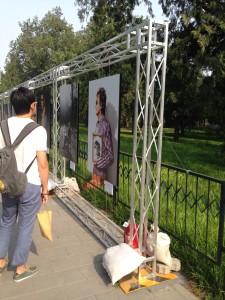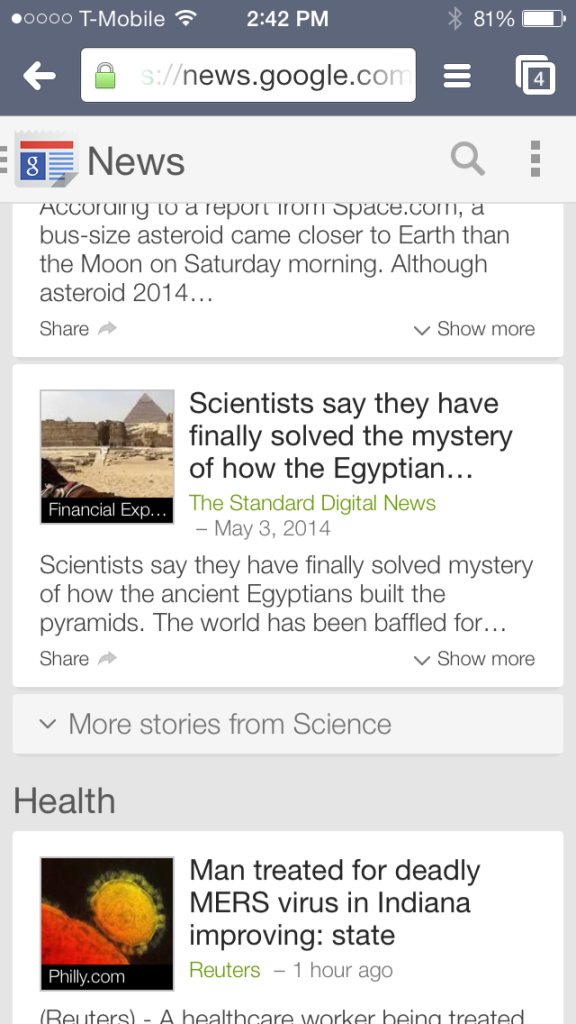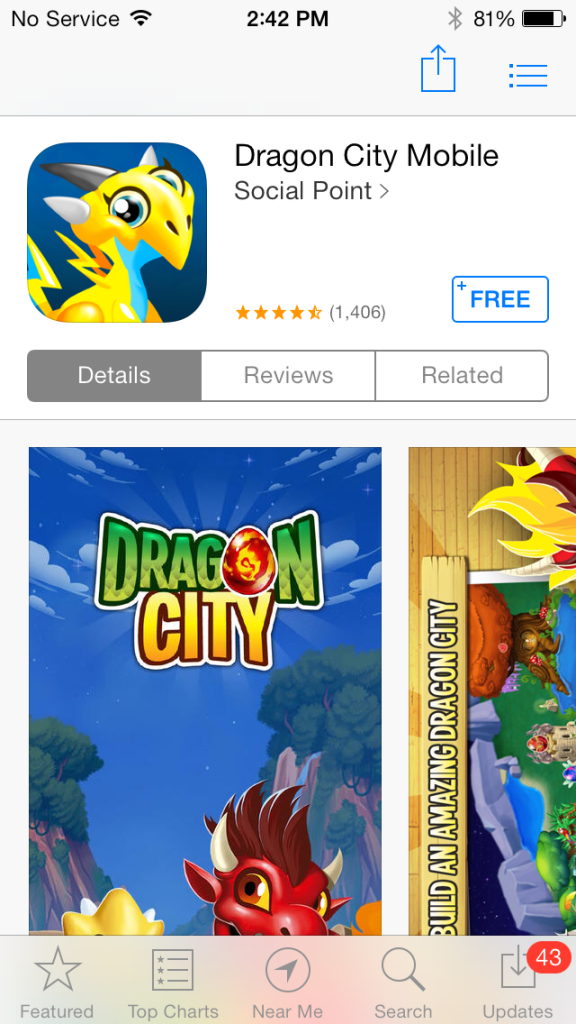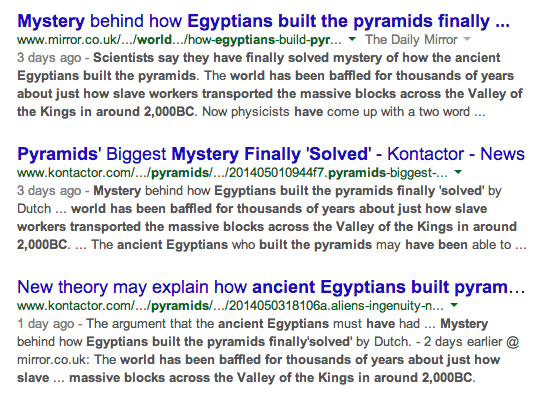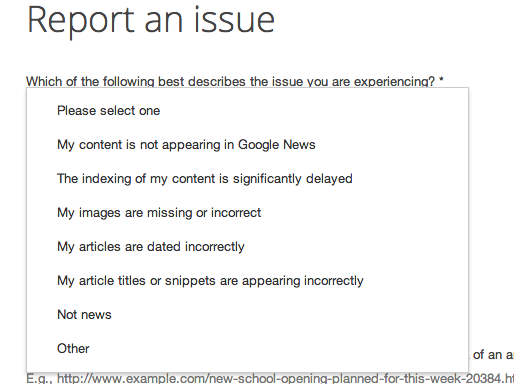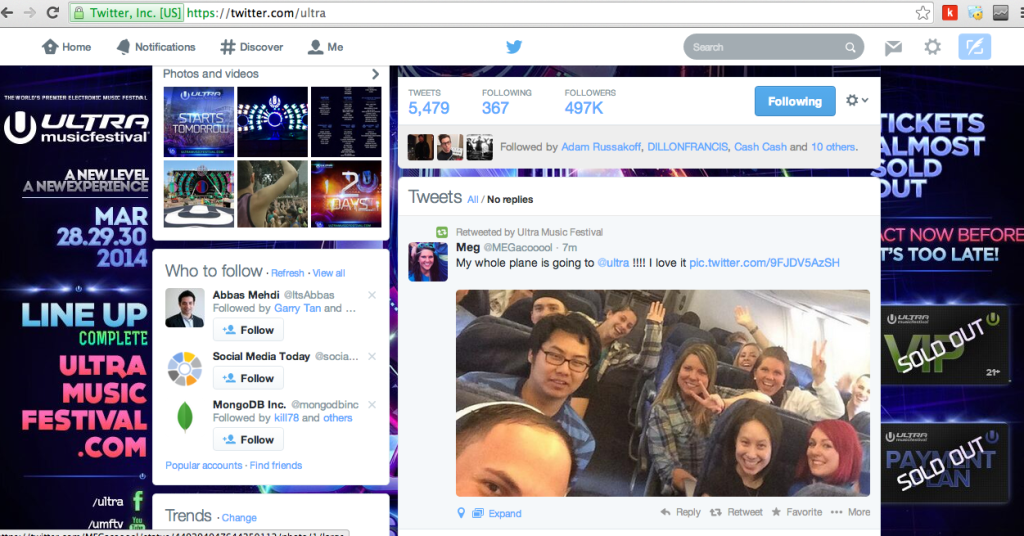On the last page of a few recent National Geographic issues there has been a section named “The Moment” which describes a “moment of peak energy”, an inflection point, discovered by one of their photographers on assignment. The idea behind this special photo blurb is that each cover story has a decisive moment which captures the most authentic energy of the subject.
My thoughts are often similar to a reporting photographer waiting to capture the essential moment of their subject: I have an undying fascination for observing moments in life during which we come to realize happy and painful truths. This past winter was no exception.
I am writing this post to dive deeper into what it means to re-evaluate yourself and the beliefs about the people who surround you. First I will begin with an excerpt from an interview of David Foster Wallace’s opinion on great art, and then I will take a look into some of the work by Marina Keegan.
Great Art
Wallace describes that great art requires a selfless emotional leap in an interview originally published by Larry McCaffery:
Really good work probably comes out of a willingness to disclose yourself, open yourself up in spiritual and emotional ways that risk making you look banal or melodramatic or naive or unhip or sappy, and to ask the reader really to feel something. To be willing to sort of die in order to move the reader, somehow. … Maybe it’s as simple as trying to make the writing more generous and less ego-driven.
I am proud of this blog in many ways, but one recurring self doubt is that I am overly mechanical in my writing; I am unready, unwilling, or unable to disclose how it really feels to be in my shoes. Any of my close friends will tell you that I speak of a few key influential moments in my short life, some of which I was able to capture here: We Weren’t Born To Follow, Peer Groups, and Peer Groups Continued. Unsurprisingly these posts (including this one) have coincided heart-break in business or life, and for better or worse.
You would also probably not be surprised to learn that these “sappy” posts don’t quite produce the SEO home-runs that an exposé of Rap Genius might bring, for example. But the page views aren’t my key metric here. This is just my brain to your brain, my heart to yours.
It’s my goal to begin publishing writing that brings out my emotion more often than I have in the past.
Marina Keegan
One great writer I discovered during my time away from school is Marina Keegan, a graduate of Yale in 2012 and the victim of fatal car crash shortly afterward. Despite the tragic nature of her death and unrealized post-college ambition (she was due to begin writing for The New Yorker just weeks later), I learned that she had an uncanny ability to narrate some of the most pivotal moments in life.
Through a series of short essays in The Opposite of Loneliness, Keegan captures three significant life lessons that I have been able to relate to in my own life. I’ll explain these lessons with help from a book review in the Pittsburgh Post-Gazette and then offer my anecdotal evidence. It is my hope that you may identify with these moments as well.
I’ve named these lessons “The Cheat”, “Fleeting Happiness”, and “B-team”.
The Cheat
In “The Ingenue,” a young woman catches her boyfriend cheating at a casual game of Yahtzee, throwing into question everything she believes to be true about him.
This is the gut feeling when your whole world spins 180 degrees. It’s important to note that the cheating action is insignificant but the overarching moral dilemma is profound.
What do you do in this situation? What I would probably do is step onto an orthogonal vector: a diverging observation point in which judgement is neither made or discarded. In one sense, the insignificant cheat is exactly that, no stakes, nothing to lose. In a more rational sense, any cheat signifies a moment of indignity.
I’ve found that we humans tend to have an irrational amount of good hope for the person we love or admire. It’s easy for infatuating feelings of a special person to override any judgement derived from an insignificant cheat. In other words, the complex and multidimensional nature of humans covers up our own unique flaws and our ability to see them in others.
I am suggesting that we pay closer attention to these seemingly insignificant moments because they are the small actions that constantly define us. In any outcome we have the ability to forgive others, and that’s important.
A couple of years ago I remember this painful feeling the first time I watched one my good friends smoke a cigarette. I was absolutely mind-blown that someone I trusted so deeply had happily accepted a life of routinely smoking cigarettes. We are still close friends, but in that moment my expectations were temporarily shattered as if I didn’t really know that person.
Fleeting Happiness
“Baggage Claim” also explores this same concept as a young couple visit a store that sells unclaimed baggage, and the thought of the personal photos deleted from the found digital cameras forces the male narrator to contemplate the fleeting nature of happiness — how quickly happy moments occur, and how quickly they can be erased.
Keegan is emphasizing that nothing lasts forever. Most of us work so hard to build up towards certain goals, but one slip up can reduce that progress to nothing.
The Swedish House Mafia reminded their fans of fleeting happiness during their final performance at Ultra Music Festival in 2013:
Remember your last day in school? This is our last day in school. We can tell you how it feels, and that we are sad, and that we are ending Swedish House Mafia together.
but they reminded us that fleeting happiness does not always have to be an unhappy memory:
…or we can tell you how it feels to have played for one million people on this One Last Tour. We can tell you how it feels to look in people’s eyes, with their hands in the air, with smiles and screaming at you because they love your music.
During this time of year (end of the school calendar) it’s impossible for students to not think about how things were vastly different a year or six months ago. Sometimes even less than than that, just moments ago.
When I lived in New York in one moment I would be dancing with my friends late into the night. Moments later I was alone in a dark apartment facing my own psychology, thirsty, hungry, and awake.
Or the moment when you leave the table at the last family holiday dinner. The last page of a thrilling novel. The moment your cell phone screen cracks. And of course the moment that ends a relationship.
One of the most important lessons I learned after leaving college is that everything can change instantly. Withdrawing from school and moving to California instantly removed me from a social support structure. Eventually the fleeting nature of my happiness pushed me towards a different course. I needed to make a change in my life to optimize for happiness, and by returning to Wake Forest I got the instant change-back that I needed more than anything else.
From my experience the cliché “you don’t know what you’ve got till its gone” stands true.
B-team
“Cold Pastoral,” the most striking short story, is a melancholy exploration of love in an age where our past never really leaves us. Claire, a college student, learns of the sudden death of a casual lover. Claire’s mourning process is full of anxiety as she grieves for someone she shared a bed with but whom she ultimately didn’t understand. This leads Claire to a painful universal truth: namely, that we are not guaranteed leading roles in other people’s stories, no matter how much we feel we deserve them.
This is probably the hardest lesson because of the line right here: “we are not guaranteed leading roles in other people’s stories”. No matter how hard we beg for forgiveness or try to improve our situation, we are not guaranteed unconditional love. Every person deserves to be loved, but I don’t think from and to whom is something that you can choose all that much.
This lesson is the hardest to accept because your past continually affects you whether you like it or not. My english professor this semester regularly projected his skepticism of the word “closure”. Yes, in a mechanical sense any situation can be terminated and escaped, but the term “closure” is really just a coping term. Both good and bad life experiences never truly leave you.
Fortunately at Wake Forest and in the startup world I’ve found a handful of people that deeply care about me. When I see any of those people leave my life it has always left a feeling of emptiness inside. In just a moment you are moved from someone’s front and center vision to the periphery. Despite real feelings making it hard to embrace this change, we have to move on and be thankful for the past.
Extrapolating this lesson further, I see this lesson applying to many tough moments in life: the classic story of a childhood sports saga when a kid doesn’t make the “varsity” team and gets sidelined with a “less talented” group of peers. When a person doesn’t get the job promotion they feel that they so much deserve. Or when a divorced parent is not granted custody of their child.
. . .
So, if people are fundamentally flawed, happiness is always teetering, and our leading role amongst people we care for is not guaranteed, what should we strive for? My friend Paul Dejoe often reminds me that striving for sincerity is the best we can do:
We forget that we are just passing through this world so we put emphasis on possessions and status when all we have to leave behind is how we’ve made others feel.
Paul suggests that we all want to be relevant to other people but he says that the only thing of true relevance is how we make others feel. Perhaps if we are more generous and less ego driven, then we can be better people through the sincere energy in our interactions.
I’m talking about the moment of when you decide to speak up in class instead of sitting back in mutual acceptance. The moment of when you say “hi!” to the stranger in the elevator instead of pretending like they are just air. The moment when you don’t cheat at the causal game of Yahtzee. These are the decisive moments of peak energy. These are the inflection points.

